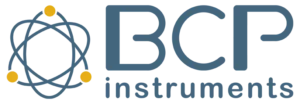43ème édition – Maastricht (Pays-Bas)
Le congrès Dioxin’2023 aura finalement lieu à Maastricht, aux Pays-Bas du 10 au 14 septembre 2023. Il était initialement prévu à Liège, en Belgique, mais le lieu prévu à l’origine n’est en fait plus disponible pour raisons de travaux.
Nous espérons que cette nouvelle édition sonnera la reprise de la dynamique qui rassemblait chaque année entre 600 et 1000 participants. En effet, le congrès Dioxin est un moment fort d’échanges et de collaborations entre scientifiques du monde entier. Il permet à nos chercheurs, ingénieurs, étudiants et experts d’échanger, de découvrir, d’approfondir et de mieux appréhender tous ces domaines dans lesquels ils travaillent tout au long de l’année afin d’améliorer notre quotidien, préserver la planète et anticiper les changements de demain.
A wide range of areas of intervention
The fields of intervention are multiple:
- Advances in analytical methods for POPs (persistent organic pollutants)
- Levels and trends/futures: abiotic/biota/food
- Human exposure level
- Metabolism
- Toxicology / Ecotoxicology / Epidemiology
- Physico-chemical properties and modelling
- Risk assessment and management
- Training / Source and controls
- From science to politics
- PFAS toxicity / Frequency and exposure
- Micro- and nano-plastics
- Fate, detection and analysis of chlorinated paraffins
- Exposure to emerging contaminants in our environment
- Environmental and human exposure to plasticisers and other chemicals
- Screening and identifying new contaminants
- Legacy and emerging flame retardants: biotransformation and toxicity / occurrence and exposure
- POPs (persistent organic pollutants) in the polar regions
- Advances in bioremediation of POPs
- POPs monitoring in Europe
- Current situation and perspectives on POPs waste management
Persistent organic pollutants (POPs)
La contamination mondiale par les POPs, polluants organiques persistants, est désormais un sujet de grande préoccupation de par les propriétés de ces polluants dits éternels :
- Ils sont persistants et se dégradent très lentement.
- Ils sont bioaccumulables : ils s’accumulent au sein de tous les êtres vivants et dans notre environnement.
- Ils sont toxiques : de nombreux effets nocifs, sur notre santé notamment, ont déjà été confirmés et les recherches se poursuivent.
- Ils sont mobiles et se propagent sur de grandes distances, même dans des lieux où la présence de l’homme est négligeable (Arctique par exemple).
Parmi ces POPs, la famille des PFAS, composés per- et poly-fluoroalkylés, représente un groupe complexe de plusieurs milliers de composés chimiques. Ils sont utilisés pour de nombreux usages : emballages alimentaires, textiles imperméabilisés, revêtements anti-adhésifs, cosmétiques, mousses anti-incendie, produits phytosanitaires, etc…
Jusqu’à présent, les plus connus étaient le PFOA et le PFOS qui font partie de la liste réglementée par la Convention de Stockholm, entrée en vigueur en mai 2004, qui interdit également la production et l’utilisation du PFHxS. D’autres PFAS, notamment le HFPO-DA, le PFBS et le PFHpA font désormais partie de la liste de substances extrêmement préoccupantes du Règlement REACH en Europe.
Une surveillance accrue dans les denrées alimentaires et les eaux de surface est en cours en Europe en attendant une évolution de la règlementation d’ici janvier 2024. A présent, il faut améliorer nos connaissances scientifiques et technologiques pour mieux évaluer et surveiller les impacts sanitaires de ces polluants éternels. Les enjeux sont de taille et le congrès Dioxin’2023 est au cœur de ces sujets préoccupants.
DIOXIN'2023 Symposium
The format of the congress – numerous simultaneous conferences, poster sessions and convivial moments – makes it an event appreciated by all participants. It will also be an opportunity to come together after the long and difficult period we have all been through in recent years.
This symposium allows scientists to present their research work, the methods used and the equipment needed to carry out their projects. It is also a time for privileged exchanges because each conference is followed by a question and answer session during which they can discuss the problems they have encountered in order to fine-tune their methods of analysis and compare the different solutions proposed by each.
Dioxin, c’est aussi un haut lieu d’échanges entre les utilisateurs et les fournisseurs de matériels et consommables de laboratoires. A ce titre, 2 sociétés représentées par BCP Instruments seront présentes et sponsorisent le congrès :
- Wellington Laboratories (Guelph, Canada) font partie des sponsors platine : depuis de nombreuses années, Wellington est un partenaire privilégié du congrès Dioxin. Wellington est un fabricant d’étalons analytiques pour les analyses environnementales : sa gamme inclue les Dioxines/Furanes, PCBs, PBDEs, retardateurs de flamme et substances per- et polyfluoroalkylées (PFAS) notamment ; en solutions individuelles et/ou mélanges natifs et/ou marqués au carbone 13.
- Chiron AS Laboratories (Trondheim, Norvège) préparent également des réactifs de laboratoires dans des domaines variés tels que l’environnement, l’agro-alimentaire, la pharmacologie/toxicologie, la pétrochimie… Ces réactifs sont disponibles soit en solutions individuelles et/ou mix, soit purs pour certains d’entre eux.
Les inscriptions au congrès ouvriront courant avril… n’oubliez pas de vous inscrire avant fin juin pour bénéficier du meilleur tarif !
L’envoi des propositions de conférences/posters (extraits) est en cours depuis le 6 mars jusqu’au 28 avril.
Pour en savoir plus, rendez-vous sur le site officiel du congrès Dioxin’2023.
A très bientôt à Maastricht !
